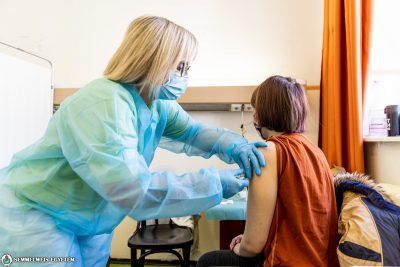The spread of coronavirus offers numerous opportunities for hackers to send emails with malicious attachments or with links leading to fraudulent websites, therefore we should be careful when opening such contents.”, warned the Health Services Management Training Centre at the Faculty of Health and Public Administration about possible cyber attacks.
Staying at home and social distancing are the most efficient “weapons” against the virus, thus most companies ordered the employees to work from home and educational institutions provide distant learning opportunities for the students. Education and healthcare are even at greater risk in terms of information security than before. That is why the Health Services Management Training Centre has drawn up its suggestions regarding distant learning and home office.
In the current epidemic situation millions of people are working in new and less secure conditions. Unfortunately in many cases, most people try to get information on COVID-19 from unreliable sources.
The Health Services Management Training Centre of Semmelweis University has always tried to maintain appropriate cyber hygiene while carrying out its duties related to health care. The areas of priority among its activities are e-healthcare, data protection and artificial intelligence. The Centre is also an active participant of ECHO, the international cyber security project, which considers the security of personal data of utmost importance, therefore proposals related to home office and distance learning were drawn up as a result of close collaboration between university, industry and military partners.
• Do not click on links and attachments in emails received from unknown senders.
• Get information from reliable sources only, such as legitimate government websites, which provide actual facts about COVID-19. Be careful with websites with slightly modified domain names (eg. corona-conona).
• Never provide personal or financial information or passwords in emails or chat programmes.
• Before donating to a charity organization, check its credibility or contact the organizations or hospitals directly.
• Do not share your work computer with your child for e-learning.
• Be aware that you are using an unsafe home infrastructure.
• Using a corporate VPN network from your home computer exposes the whole IT system of your company to risk if you do not comply with the rules.
• Do not be the victim of manipulation. Do not clink on click-bait links about the coronavirus.
• Use only reliable encrypted (HTTPS) sources.
• If possible, use communication channels provided by the company instead of using chat programmes.
• Take special care when using open Wi-Fi.
• Using the camera and audio system increases vulnerability as spyware can easily join private or corporate conversations.
The European Union has placed strong emphasis on cyber security since 2019 and has launched a coordinated programme consisting of 4 projects focusing on citizens, innovation, government and the industry. The Health Services Management Training Centre assists the professional part of the programme mainly through dissemination tasks and the professional representation of the area’s health related aspects.
Source: Health Services Management Training Centre
Featured image (illustration): Zoltán Adrián
Translation: Ágnes Raubinek


